
This is because Windscribe is one of the more popular VPNs, but it also isn’t THAT well-known.
I mean, it’s been downloaded over a MILLION times on the Google Play store, and its Chrome extension has nearly a MILLION users—to say nothing of the times it’s been downloaded on Apple products, or PCs or even Linux desktops.
So clearly, Windscribe is a significantly sized VPN. And a lot of people like it—but it’s not as big a name as a lot of its competitors.
And in my book, this is a VPN you need to at least KNOW about.
Now, my reviews are as unbiased as is humanly possible.
Because, at the end of the day, I just want to get to the TRUTH—not just for you, but for my own sake as well.
But I have to admit…I DO have a special affinity for Windscribe.
Why? I’ll talk about it more later, but the short version is: once upon a time, I wrote a review about it. In the fall of 2017.
And while I was testing it, I discovered that I LOVED its free version—in fact, it’s easily one of the best free VPNs out there.
So I’ve been using it SINCE I tested it a year and a half ago.
But I realized the time has come to truly TEST Windscribe again.
It’s grown up since I first met it, and it has also grown in popularity. So I figured—I might as well try it AGAIN, this time using the full service, and with as unbiased an outlook as I can.
And after digging deeper than the last time, I can say that my opinion of Windscribe HAS evolved.
For better, or worse, you ask? And is it for YOU specifically?
Well, that’s what we’re going to get to the bottom of here.
Let’s start with the fundamentals:
Performance
Performance is a big deal for almost anyone looking for a VPN.
Remember that the very nature of VPNs is going to involve some slowing down of your internet speeds…
So the best performing VPNs will reduce your speed loss as much as possible.
So let’s take a look at how Windscribe’s speeds worked out for me.
This is my “normal” internet speed:

This was with Windscribe activated:
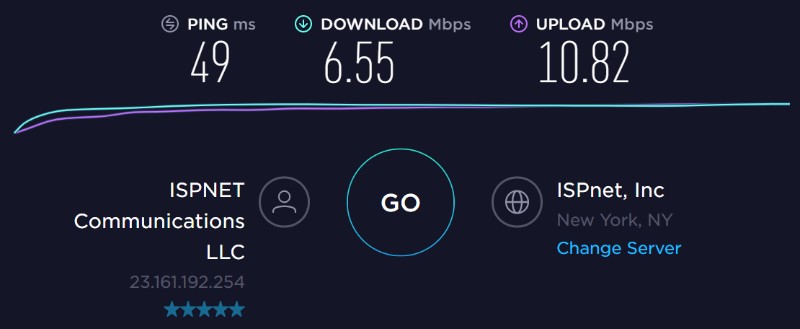
Okay, no way around it:
That’s ABYSMAL. So low I didn’t even believe it at first. Because Windscribe never felt slow in my years of using it—but that’s not good enough.
So I decided to give Windscribe a second chance at the speed test.
The instance I just showed you was when I was connected to the “best location”—but I connected manually to a server closer to me:
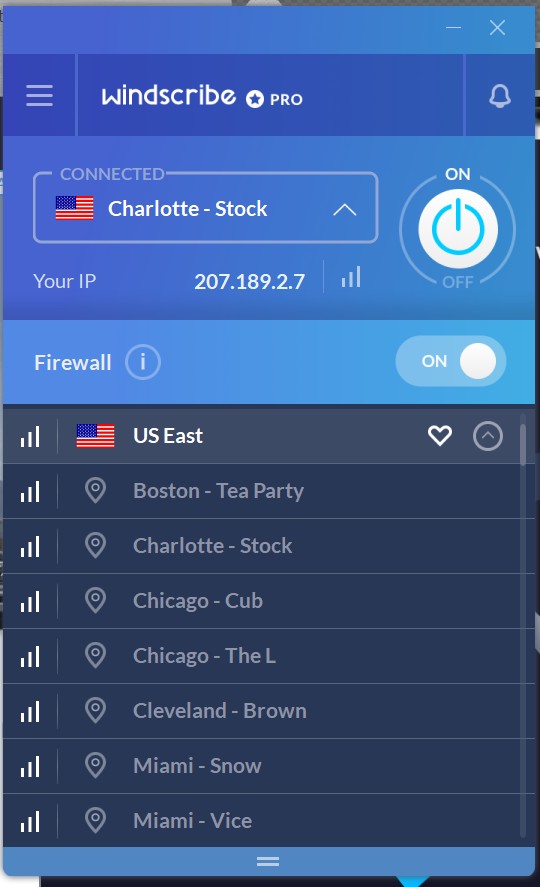
And I got this result:
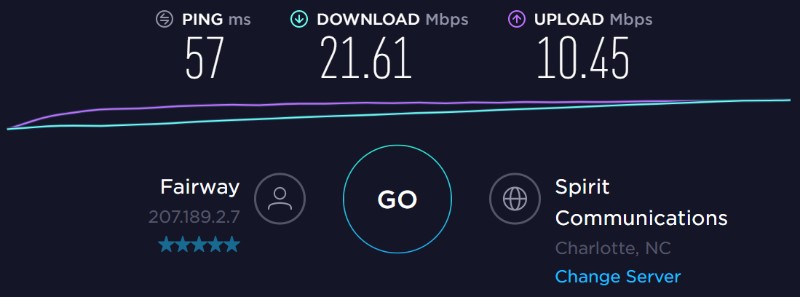
Clearly, that’s MUCH better than the last result: the upload speed stayed pretty close to the normal speed, but the download speed effectively TRIPLED.
But, you might have noticed something:
It’s still HALF the normal download speed. And I’ve got to say friends—that’s NOT good. In fact, it’s BELOW AVERAGE.
So many VPNs I’ve tested have managed to get CLOSE to my “normal” speeds—it’s become more and more of a standard to be really fast. Which is good overall.
But that means Windscribe unfortunately falls behind in speed, especially compared to a lot of other options.
And it also means you might not be able to trust what Windscribe says the “best location” is—though I’ve had that same problem with other VPNs in the past, too.
So there’s an area, right off the bat, where my opinion of Windscribe changed…for the worse.
But sometimes, aside from speed tests, you’ll want to put things into practice.
And one of the things people ALWAYS want to use VPNs for is STREAMING.
Luckily for us, Windscribe is one of the VPNs that has tried to go out of its way to make streaming easy.
Like many of its competitors, Windscribe offers a few servers specialized for streaming—Windscribe calls them Windflix servers.
So to test out Netflix with Windscribe, I used one of these servers:
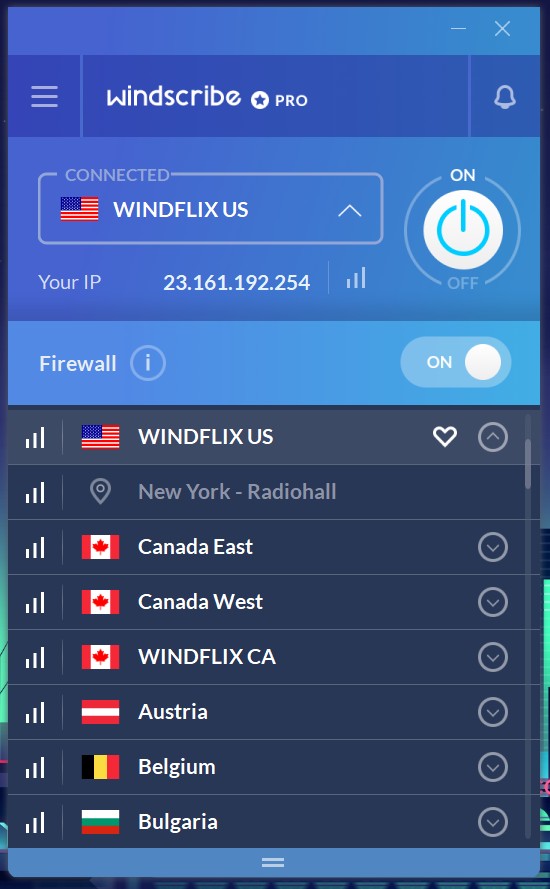
And then I tried Netflix:

It worked PERFECTLY. And it was FAST, too.
Needless to say, Windscribe works well with American Netflix. Suppose you want to try another country?
In that case, Windscribe only has two other Windflix “channels”—for Canada and Japan. Of course, you can still try connecting to Netflix from any of the other locations.
For this example, I tried Japan:
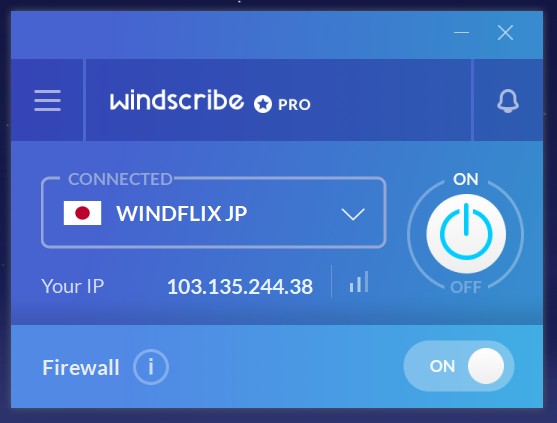
And here’s the result:
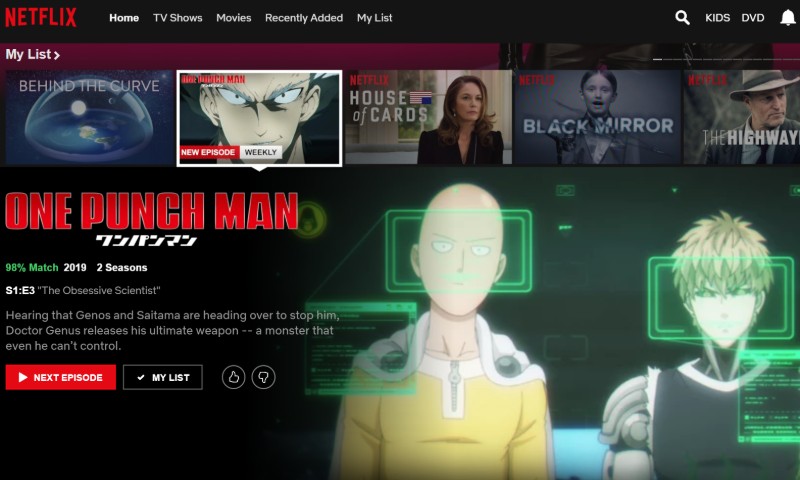
Once again, it was PERFECT.
In fact, it was only marginally slower than the US Windflix—so I think the “Windflix” servers are not just fluff, but are quite capable.
Of course, unlocking streaming content is only one of the big things people want VPNs for.
The other popular consumer goal of using a VPN is to facilitate file sharing and torrenting.
Not all VPNs are super friendly with torrenting—so let’s see how Windscribe did:
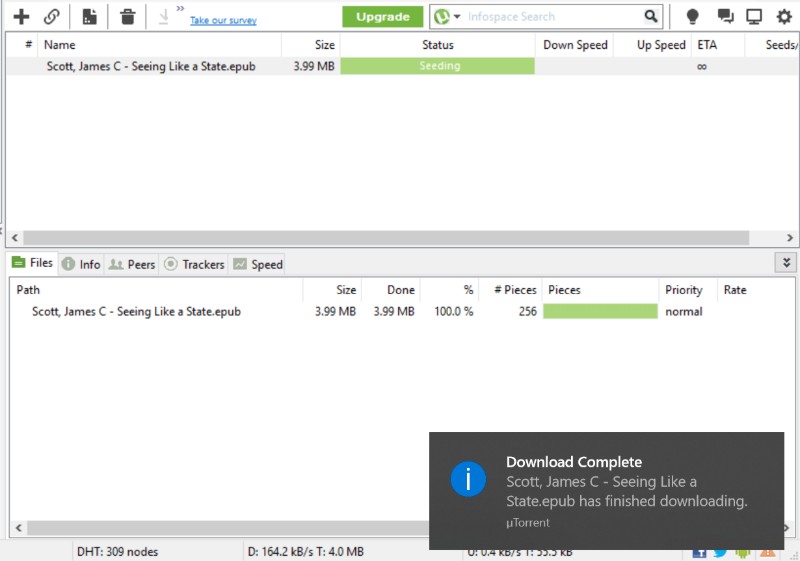
It only took a few seconds for an ebook I’ve really wanted to read to download.
Granted, it was only a 4MB ebook, but nonetheless, it didn’t take too long.
So now after all this testing, where does Windscribe really stand on the performance category?
Well, it’s true that Netflix and torrents have worked SPLENDIDLY with Windscribe. Just as good as the best VPNs.
But the speed tests are a really big thorn in Windscribe’s side. Please understand I’ve tried speed tests outside of my house, connected to Ethernet AND untethered, and from different server locations.
The essential facts remain that Windscribe’s best and closest servers to me still show relatively POOR speeds.
So I’ve got to be honest with you:
In my experience, Windscribe performs really well. I’ve been using it for a while and never been dissatisfied.
This is most likely because even if Windscribe is slow, I’ve not used it heavily enough for it to even register.
Plus, the things a lot of people want VPNs for can still be done well with Windscribe. But if you plan on being a HEAVY VPN user, and you want only the best speeds, Windscribe may disappoint.
Don’t worry if that sounded like a negative start—our story isn’t over yet:
Ease of Use
Ease of use is one of those things that everyone needs, even if not everyone realizes it.
Okay, I’ll admit, that’s not FULLY true. Beginners definitely need user-friendliness more than pros.
BUT even really tech-literate people will find user-friendly VPNs just speed things up for them.
So how does Windscribe go?
The good news is that for SETTING UP Windscribe, things are really easy. Beginners won’t need to worry there.
It’s pretty easy to make an account:
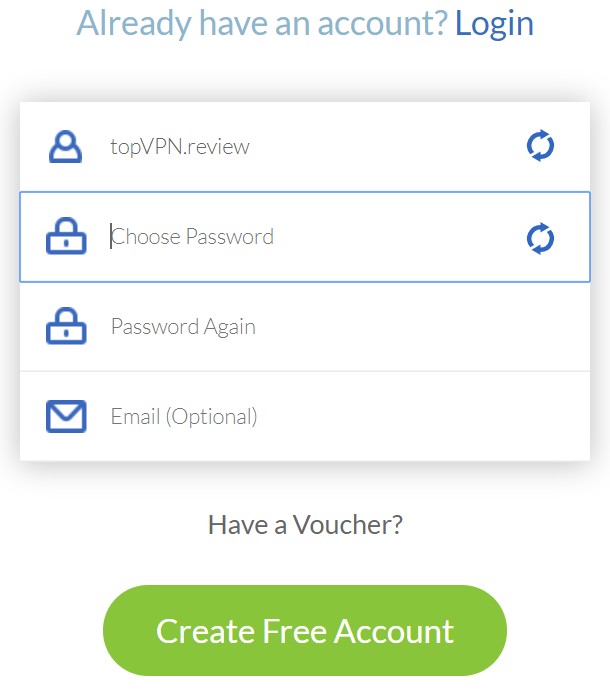
And there are a few payment methods available (a plus for privacy, though there aren’t as many as I wish):
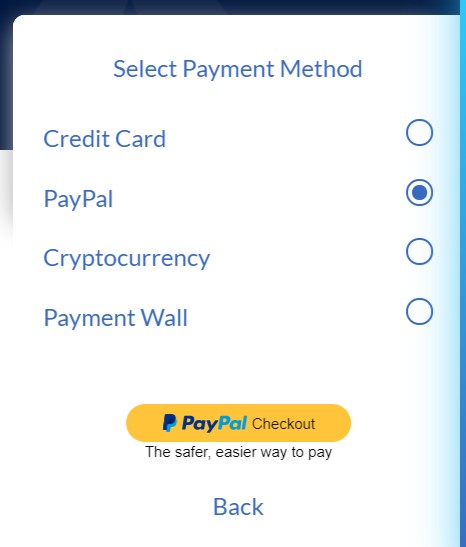
Once you’ve paid, your account—which is by default, a free account—gets upgraded:
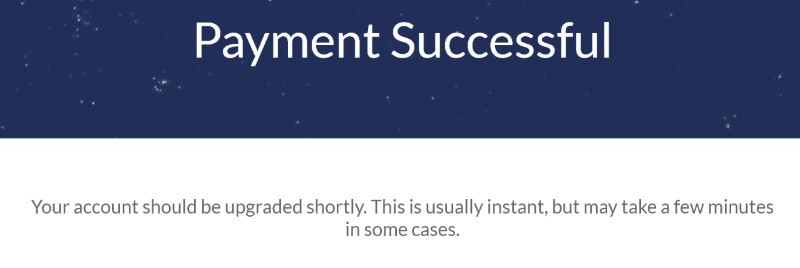
And you can download the easy way, or choose a custom installation. Not all VPNs offer this, so it’s nice to see the option:
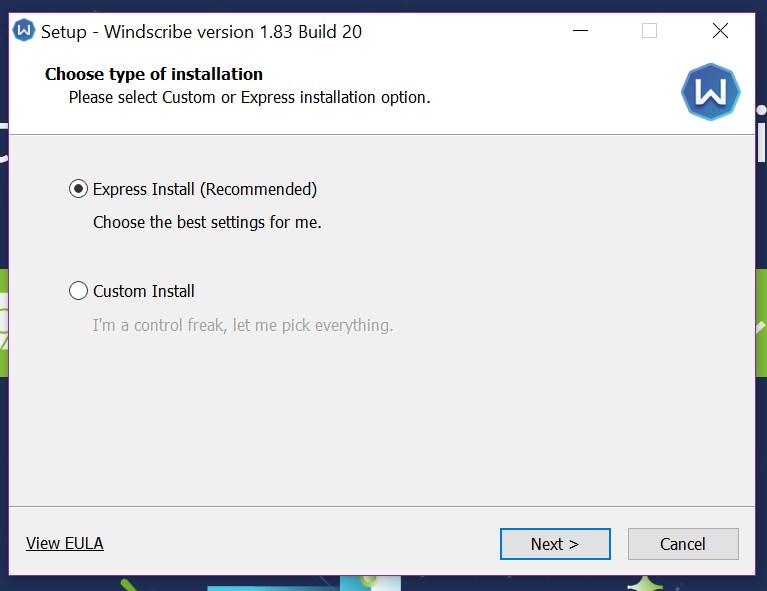
As a Windows 10 user, I did find my desktop wasn’t super-friendly to Windscribe:
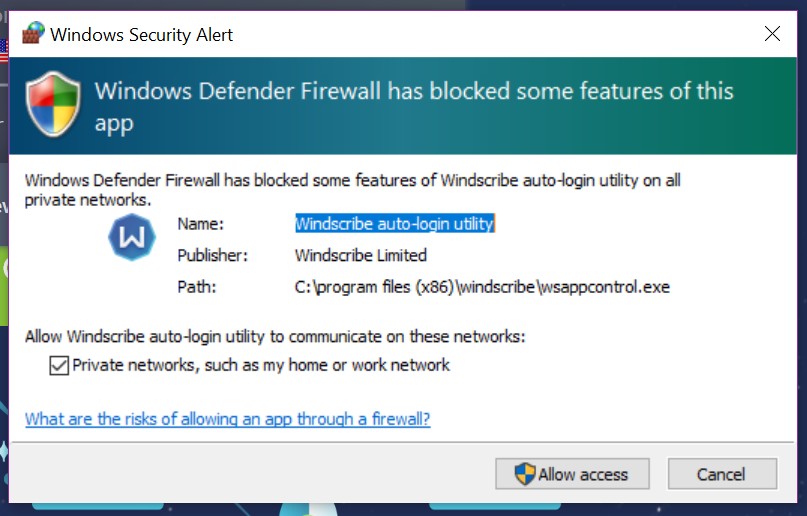
But that’s not really a big deal, even if you’re a beginner.
Anyway, once you’re all set up, this is what the app’s “home” page will look like:
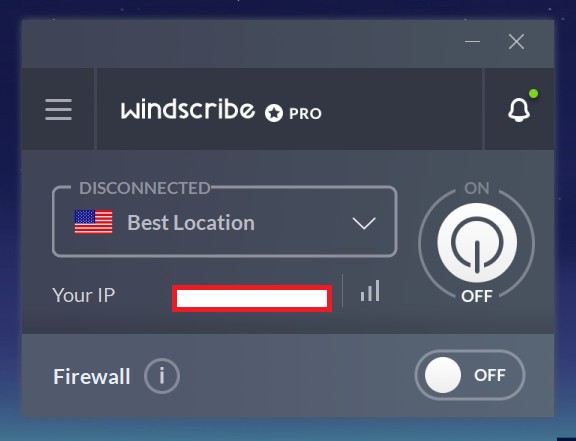
I like it. It’s really straightforward.
Like most VPN software, you basically click an “on” button, and get shown a few details—like where you’re connected, and what your IP is.
You can install the app on your web browser (I currently use it on Firefox and Chrome) and in fact Windscribe encourages using both the desktop app and browser extension.
Here’s what it looks like on the Chrome web store:

And once you’ve installed it, it looks just about the same as it does on the desktop:
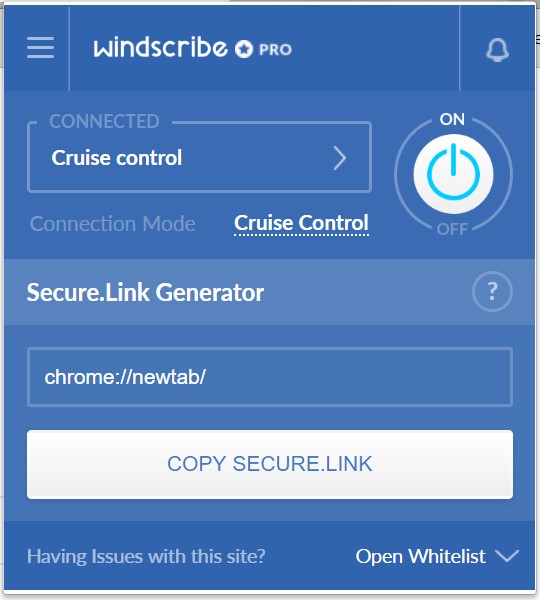
But there are a few more details—I’ll explain those soon, but as you can see, it’s still pretty straightforward.
Also, notice how it’s bright blue instead of gray? That’s what happens when the VPN is “on.”
I personally like it a lot. The icons in your browser and desktop will also turn blue. It’s a neat little gimmick.
Now, although so far Windscribe seems easy to use—it is—sometimes things come up:
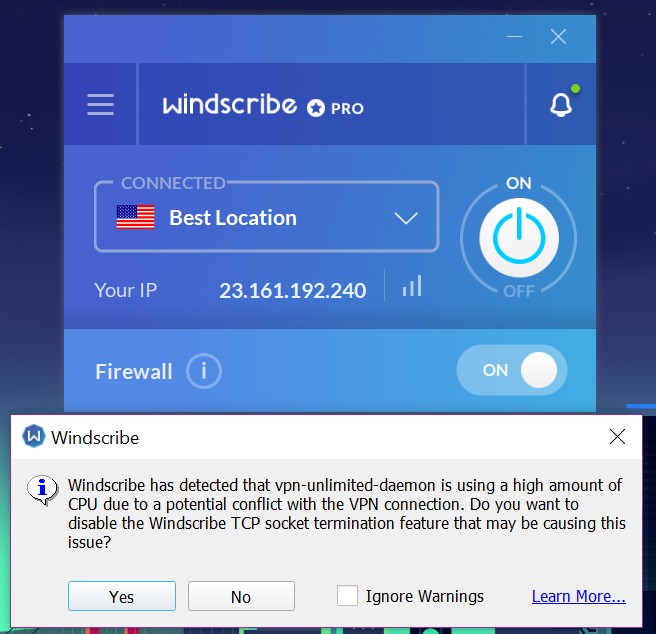
As you can see, this isn’t super easy to understand unless you’re already a bit technically knowledgeable.
Now, it’s true there’s a “learn more” link that will explain things…
But it’s not much easier if you’re a beginner.
And I’ve noticed that some other Windscribe features really aren’t given a good enough explanation. If you’re familiar with VPN tech, they make sense, of course—but if you’re new to this stuff, Windscribe’s explanations don’t help so much.
I think the bigger issue, though, is HERE:
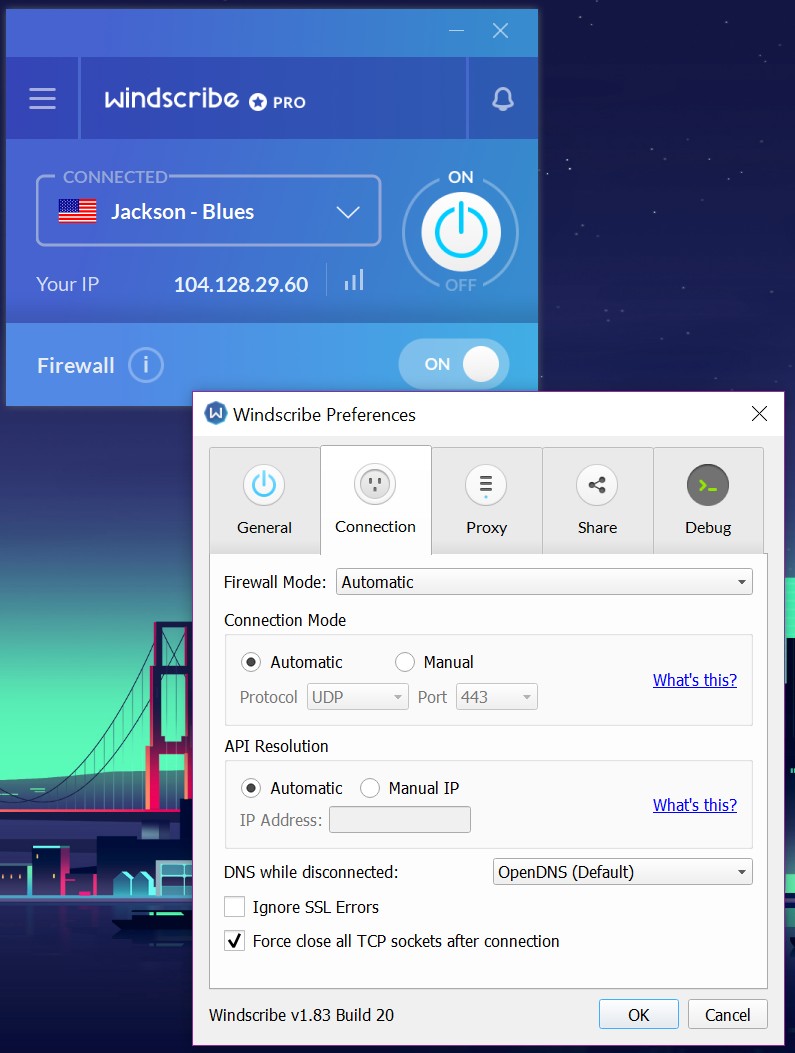
I’ll get into this part of the app a little more in the next section, but first, take a quick look at this picture.
Now, does it look beginner-friendly to you?
Well, it doesn’t to me. I love VPNs, so it doesn’t bother me much, but if I were just starting out, I’d find that overwhelming.
The truth is that unless you’re more tech-savvy, you won’t be able to make FULL USE of Windscribe’s features.
And those features are pretty good, by the way.
So while Windscribe is easy to install and set up, it’s not super user-friendly for customization and accessing more advanced features.
And about those features:
Pricing and Features
Pricing and features are always an important thing to consider.
You want to know what you’re actually going to PAY and what the features you get for that price will be.
Now, there’s an easy way to start off this discussion for Windscribe.
Because I can start with one reason why 1) I’ve used it so much, and 2) it’s one of the most popular VPNs around:

Yeah. There’s a free version.
Now, I’ve got to try my best here not to be too biased.
Why?
I mentioned it earlier, but I’ve been using the free version of Windscribe for about 1.5 YEARS.
Now, normally I wouldn’t recommend free VPNs. But as far as free VPNs go, Windscribe’s is easily one of the best around—if not THE best.
This is because the performance is essentially the same.
You lose some features, including location options, and you’re restricted to 10GB a month.
Technically it’s more like 2 with a free account. But if you register with an email address, it automatically becomes 10GB a month—so why not. You can just use a throwaway.
TRUE, the data limit DOES suck. But here’s the thing:
Free VPNs usually have either monthly data limits or they have lowered performance.
To give you an example—TunnelBear gives you 500MB a month, which goes by in NO TIME.
On the other end there’s ProtonVPN, which has no bandwidth caps BUT is pretty slow to the point of being actively frustrating.
Windscribe’s free plan gives you a great compromise: full performance, some basic features, and 10GB is usually enough for web browsing and even some videos as long as you don’t use it CONSTANTLY.
So as I am always testing out VPNs, I tend not to stick with one—I don’t like to “settle down” if that makes sense.
So using a combination of Windscribe’s free 10GB and Tor is usually good enough for me. And after using it for such a long time, I can definitely say Windscribe’s free plan has some of the best value out there.
Okay, okay. I know. What about the “real” stuff?
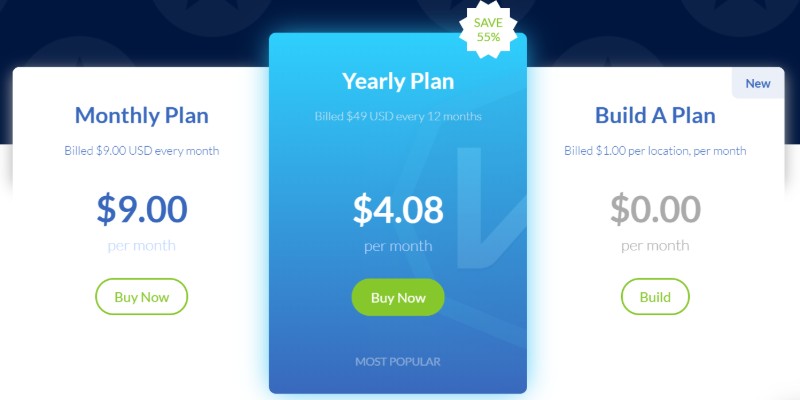
Right off the bat, the monthly plan is one of the MOST AFFORDABLE monthly plans I’ve seen.
Of course it’s more expensive than longer term commitments. But the basic facts are that most VPNs charge upwards of $11 a month—usually closer to $13.
So the monthly plan is a steal if you want to pay month-to-month.
Now, the yearly plan is pretty average. I’ve seen more expensive options, and cheaper ones too. Not a ton to note here.
But things get REAL interesting on right:
A CUSTOMIZABLE plan. If you have a pretty clear idea of how many locations you want to operate “from,” you can pay per location per month. A dollar per location per month.
If you know what you’re doing, this can be an EXTREMELY cost-efficient solution.
Okay, so all that is very cool.
But what do you actually GET for the prices?

The essential bit is that you get unlimited data and all the locations, plus the security add-on the ability to make configuration files (which requires some know-how but lets you manually configure your VPN connection if anything is going poorly).
As far as the locations go:
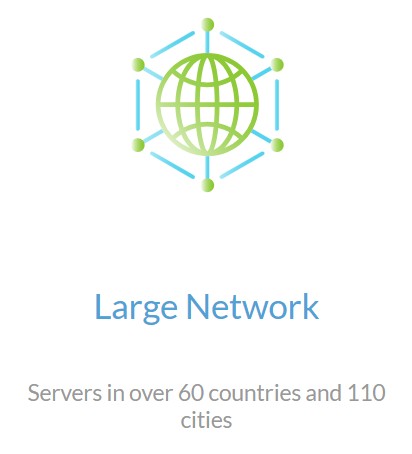
We’re not talking about a record number of locations, BUT it’s still pretty decent selection of locations.
It’s at least ON PAR with some of the largest VPNs around. So I give Windscribe props.
And what’s particularly cool about the servers is that you can easily access some Netflix-friendly servers (you may have noticed this in the earlier section).
There are only a few—so only a few locations are specifically optimized for it—but it’s still pretty cool:
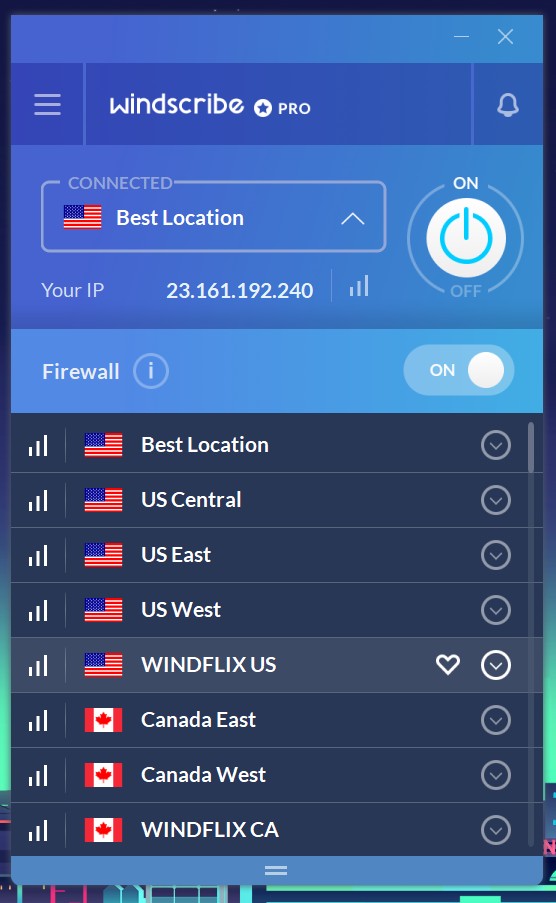
You may have noticed the “firewall” button. It sounds cool, but here’s what it REALLY is:
An internet kill switch – an option to block internet connectivity while the VPN isn’t on/or is switching servers.
Which, by the way, is still cool, and a real important feature. It just happens to not be called an internet kill switch.
Let’s also expand on R.O.B.E.R.T.:
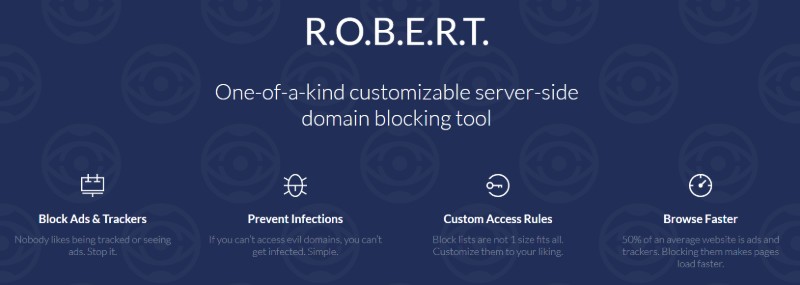
A lot of VPNs do offer some basic ad-blocking and DNS leak prevention, but R.O.B.E.R.T. is a little cooler than the average VPN add-on feature, because its CUSTOMIZABLE:
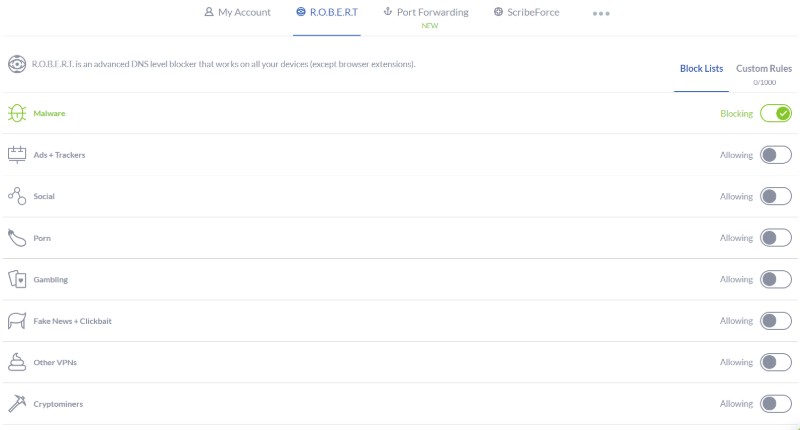
Unfortunately, you can’t do this within the app itself—which I think would be handier and look cooler—but the point is you can still DO IT, even if it’s on Windscribe’s website.
And, it’s a bit easier to use than some of the other Windscribe settings, because you just toggle the options.
Aside from that, the desktop app lets you do some nifty things:
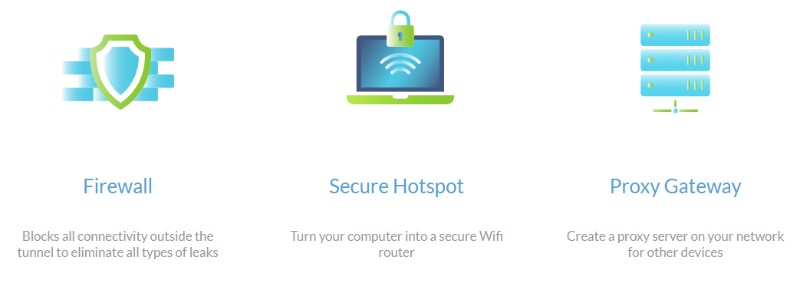
You can activate a firewall, turn your computer into a mini-router, and create a proxy server.
The browser extension also has some neat features:
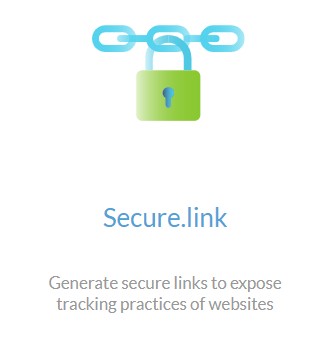
This integrates really well with the browser extension, because you can just plug in any URL, get a secure version, and a brief report card.
Now, you can do some more advanced stuff in the “preferences” section on the app:
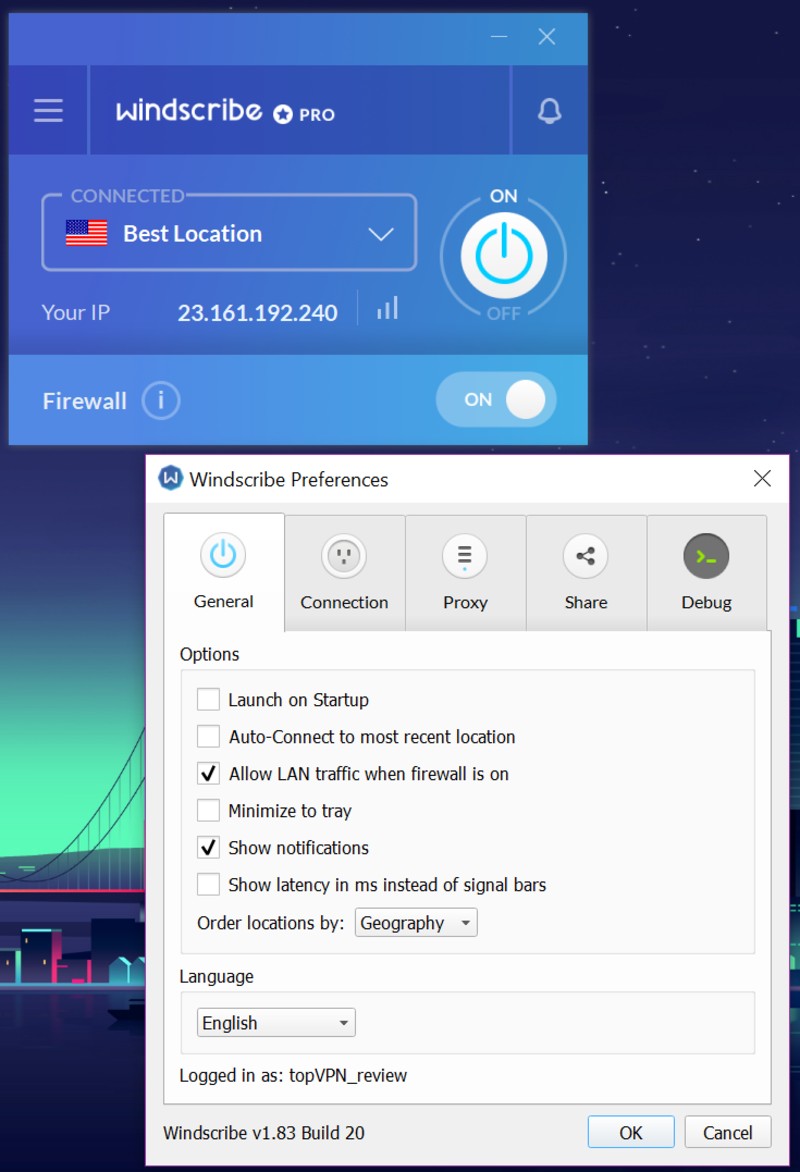
The general stuff is, y’know…general. Kind of basic, the stuff you’d expect in most VPN software settings.
Things get more advanced as you head over to your connection preferences:
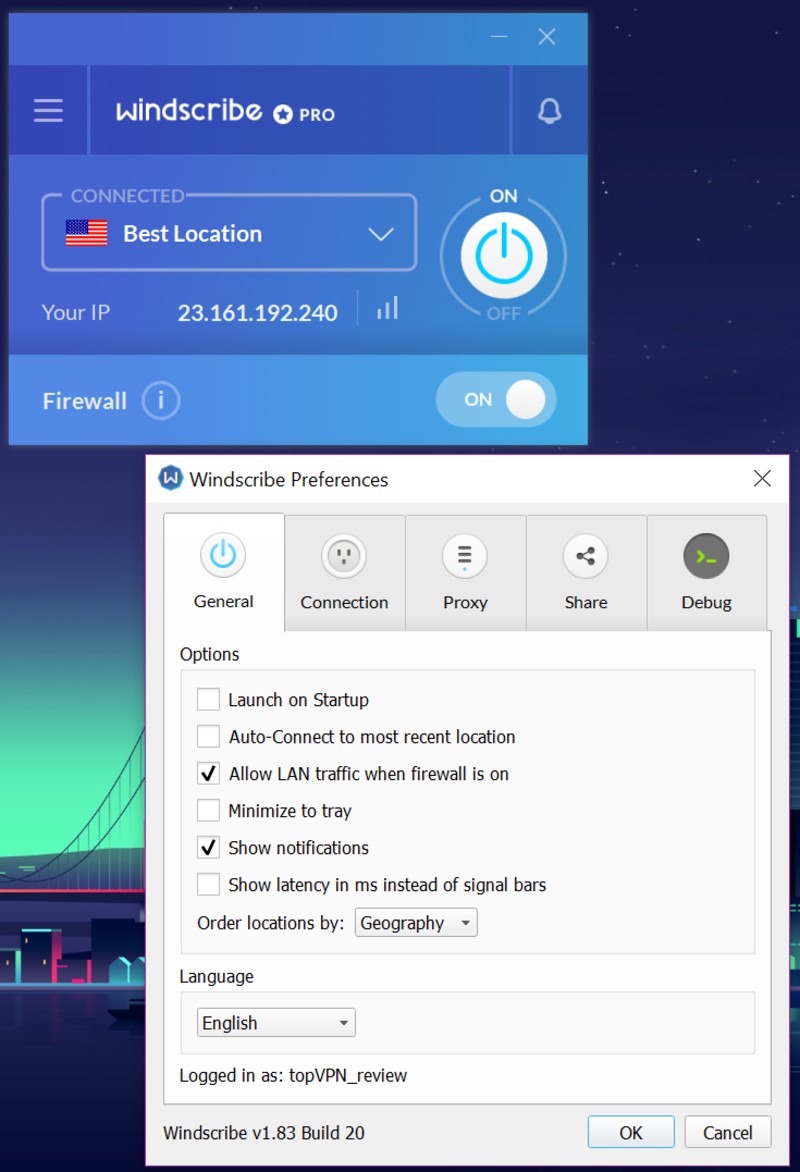
You can probably tell that beginners—and even users who are generally tech-savvy but not knowledgeable about VPNs specifically—should probably stay clear of this area.
Nonetheless, advanced users will definitely appreciate the control they get over their VPN settings.
It doesn’t end there. If you have a LAN proxy you can hook it up here:
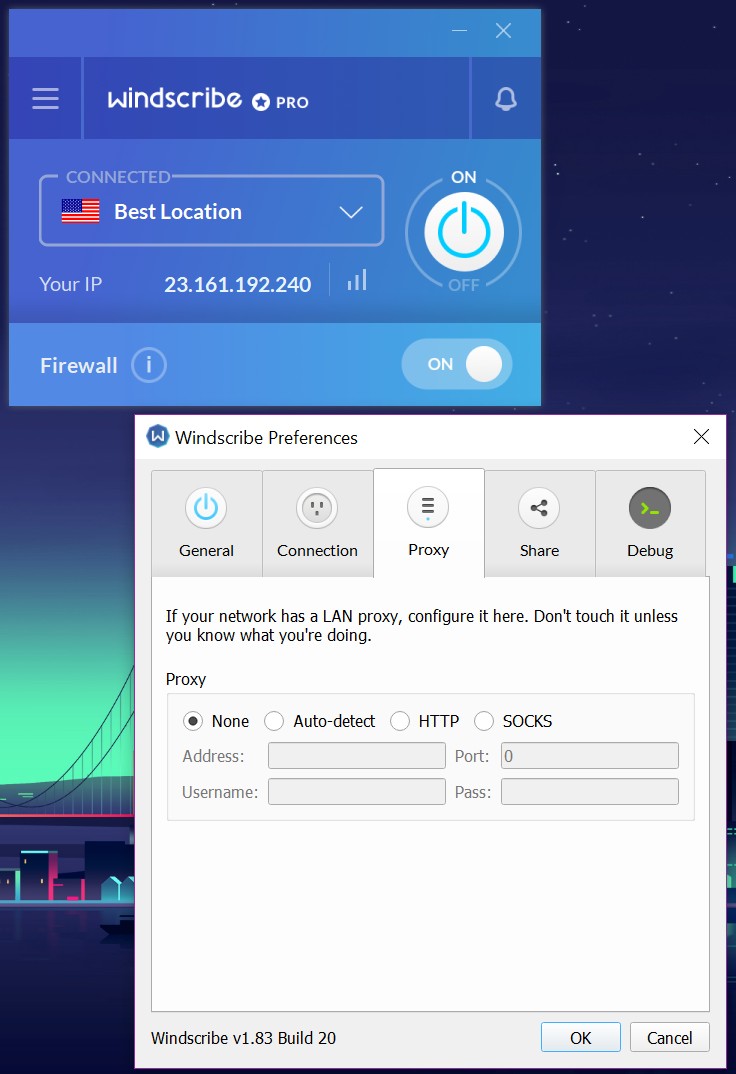
You can also handle the proxy gateway and hotspot settings that I mentioned here:
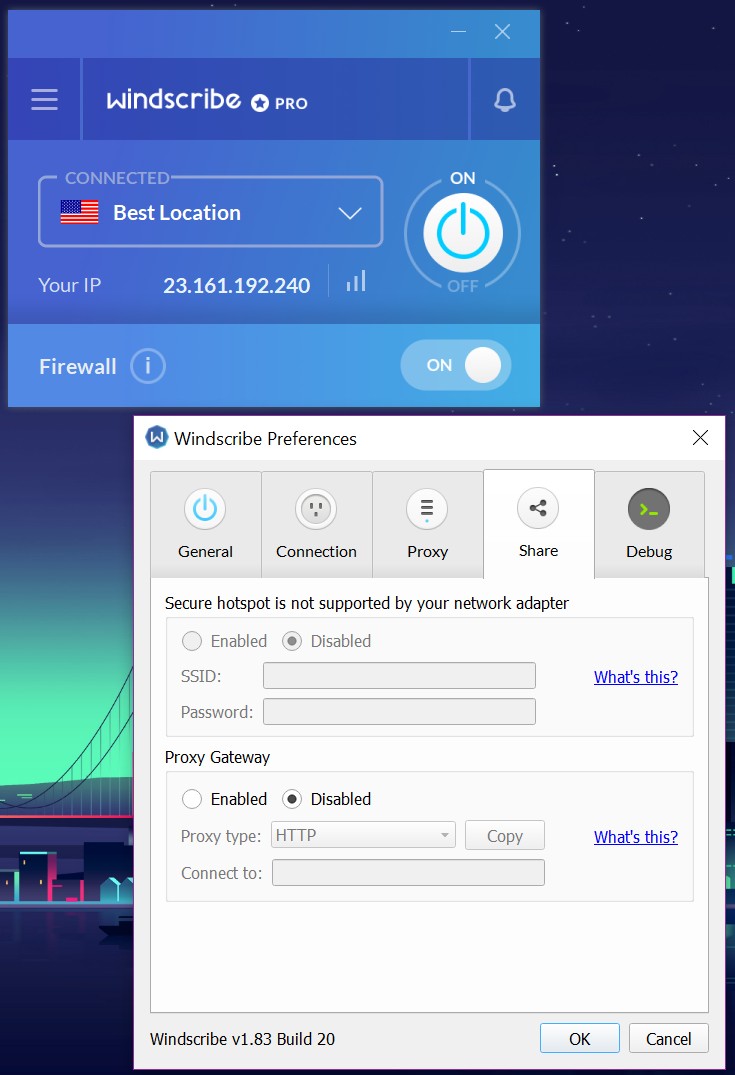
And finally, you can debug the software itself if you need to and view relatively complete details on it.
That’s ALMOST it for the features.
Last, but not least:
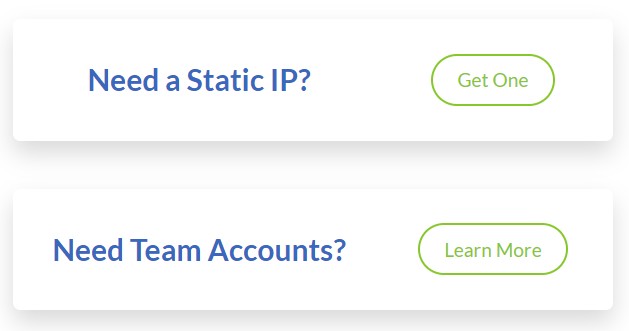
For additional charges, you can get a static IP or a team account.
But even without these, I think it’s pretty clear that the regular pro VPN is LOADED with features and settings.
Some of these admittedly will not be useful to less advanced users, but it’s still an impressive set. And for the prices, GREAT.
Of course, we’re not done yet:
Customer Support
Customer support is a bit similar to ease of use, in that everyone needs it, even if they think they don’t.
In this case, beginners obviously will want to have customer support handy to help them use the product, or get over glitches.
But even experts will find customer support useful for getting MORE out of the product, and for quick resolutions to stuff even they can’t fix.
So it’s useful to everyone, even if it’s not something you want to use.
Windscribe’s software has a little button for help:
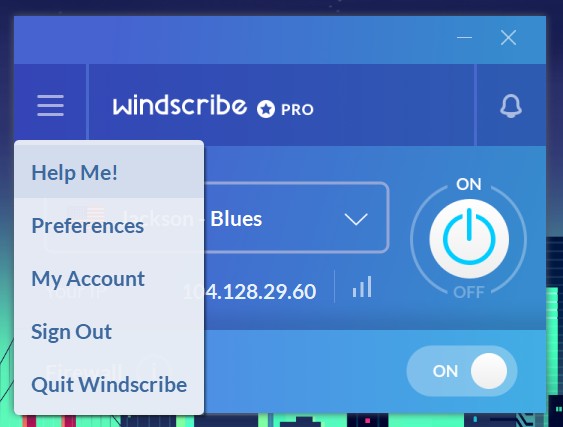
But unfortunately, that just takes you to the Windscribe WEBSITE.
Which isn’t too bad, but I think it’s handier to have some level of customer support built INTO the software itself.
Anyway, this is what the on-site resources look like:
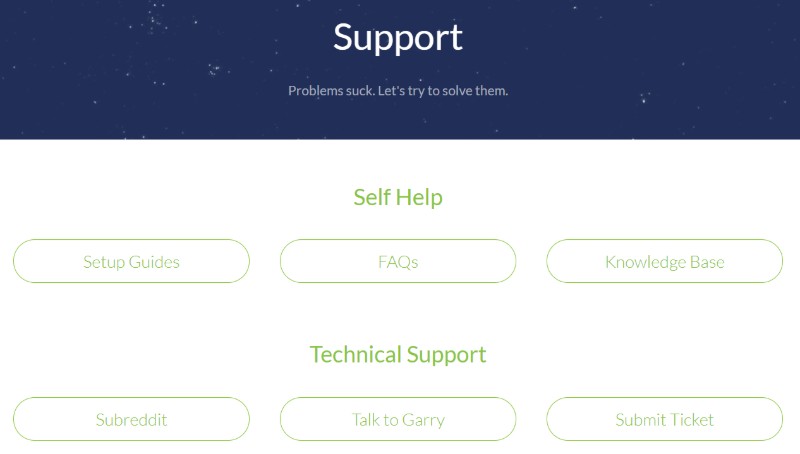
You’ve got a few options: you can use the knowledge base, FAQs, or setup guides.
The knowledge base is so-so:
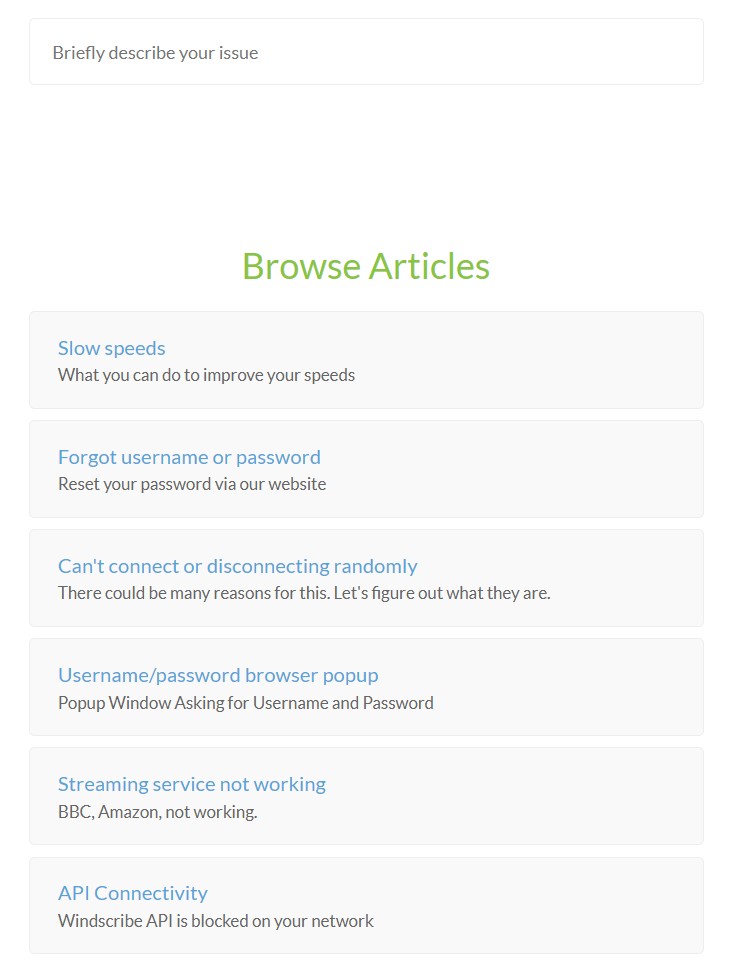
The collection of articles isn’t huge, and the individuals aren’t too long, but the essential info is there.
The good news is that the knowledge base isn’t the only on-site source of info.
The FAQs are kind of basic, but that’s fine.
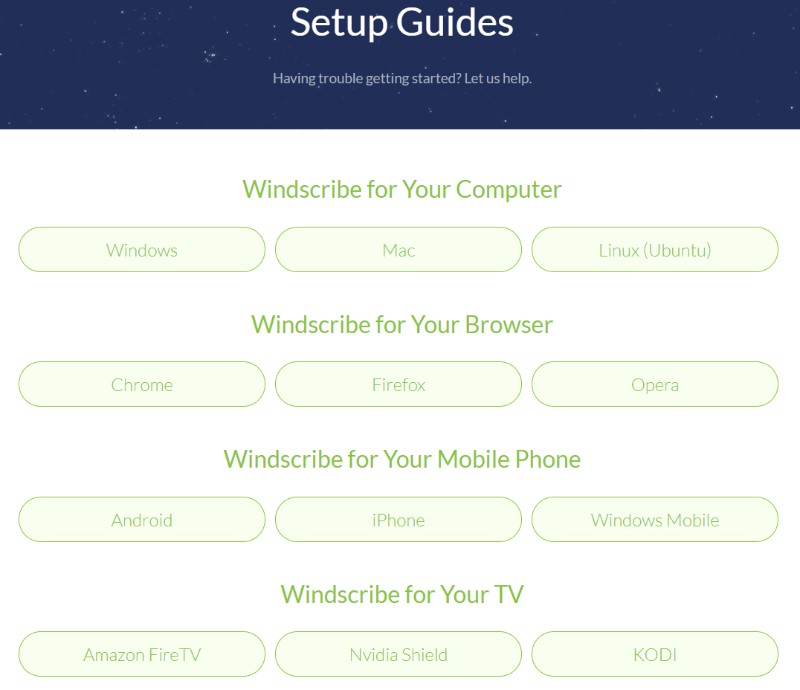
Compared to other setup guides I’ve seen on the sites of other VPNs…
These aren’t crazy. But they’re still good enough, and have enough detail that I think almost every user who needs them will be satisfied by them.
So that’s the on-site informational material. It’s pretty decent, for a VPN (a lot of VPNs can be skimpy on this stuff).
You can also talk to support staff directly. One way is through live chat.
When you first try to use Windscribe’s live chat, you’ll actually be talking to their AI, Garry:
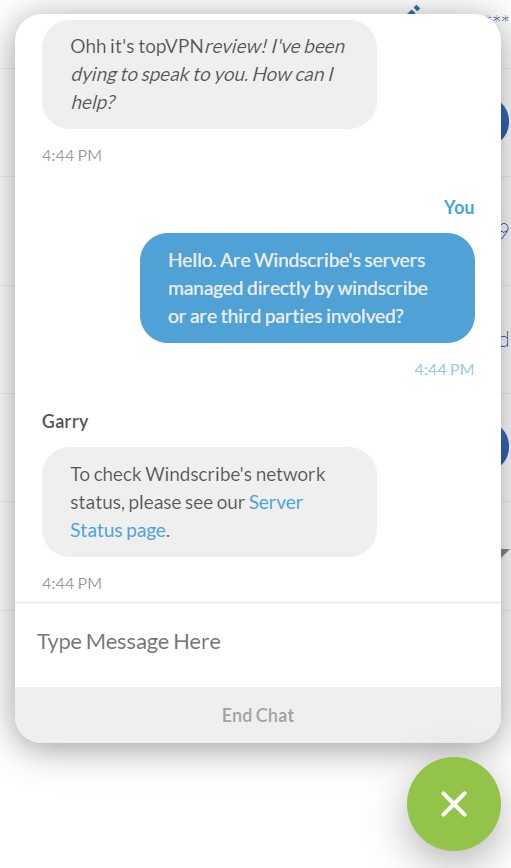
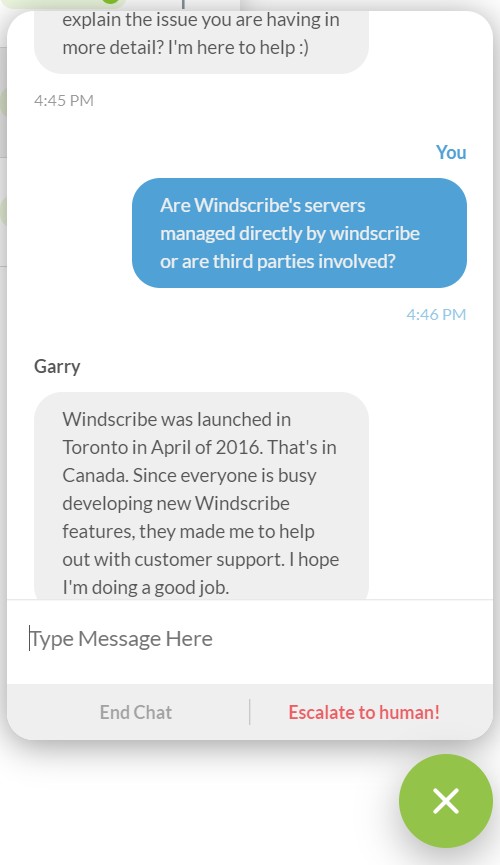
If the chatbot doesn’t answer your question, you can “escalate” to a representative.
But sometimes THIS happens:
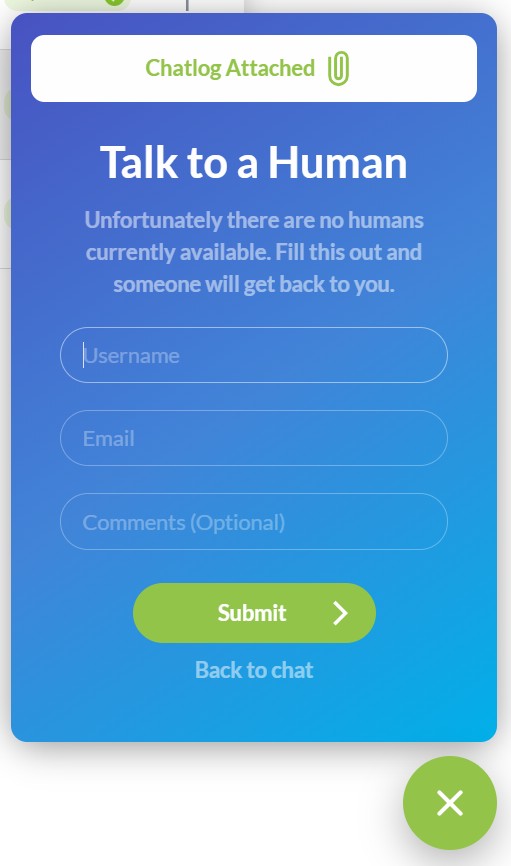
And if that happens, you’ll basically be starting a support ticket.
I have mixed feelings about this.
On one hand, obviously I’m disappointed:
The AI didn’t really work for my question, and there were no reps available to take a live question.
On the other hand, the transition to creating a support ticket was flawless:
I only needed to fill out three short fields, and the conversation log with the bot was attached—so you don’t have to do much to make a ticket instantly out of a failed chat.
Though again, the key here, is a failed chat with a bot.
Now, sometimes I have gotten lucky with the live chat. It’s been very on-and-off. So I can’t completely write it off.
As for support tickets, they’re very reliable and relatively speedy.
The other resource, which you may have caught onto, is on Reddit:
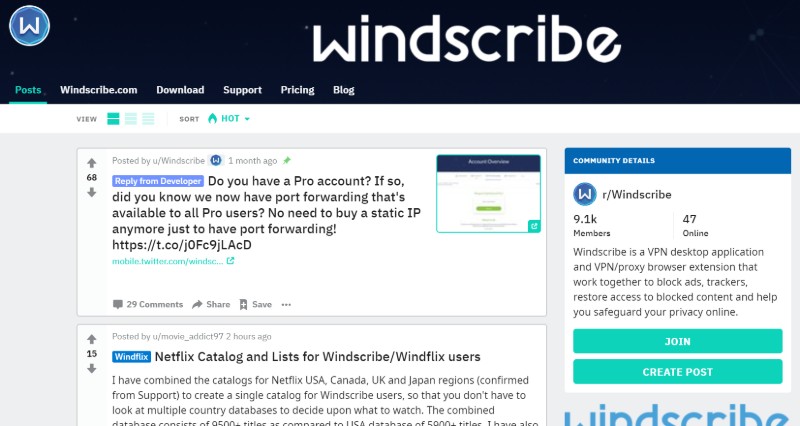
This is a great resource.
And it’s a creative one too. Some companies have forums on their websites where customers can talk about the software—but the thing is, a lot of VPNs DON’T have that kind of stuff. Other companies do.
So Windscribe is basically outsourcing its forum to Reddit. Which is fine—a community of 9,000 people will be there to help, almost all of them users like yourself.
This is particularly good resource for more advanced users. Ordinary customers post new things they discover or tips for making Windscribe better.
And actual members of the Windscribe team often post themselves, or reply to users. So it’s not just a forum, but a place to contact moderators.
So to sum all this up:
The inconsistent live chat is unfortunate, but the ticket system works well and the on-site information is pretty good. Plus, the subreddit is a great resource.
Overall, then, Windscribe has pretty good customer support—even if not the best.
But important as customer support is, no assessment of a VPN will EVER be complete without an evaluation of THIS stuff:
Security and Privacy
Security and privacy are MAJORLY important for VPNs. And you know what?
It’s also an area a LOT of VPNs suffer in.
Ostensibly VPNs are to make users more secure and anonymous on the internet, but as many users just want to access content, and as there is always some incentive in saving money, some VPNs cut corners.
Now, one component of privacy and security, I’ve already talked about in the features section.
Remember R.O.B.E.R.T.? Or the ability to turn your computer into a secure hotspot? Or any of the other things that Windscribe lets you control?
All that is GREAT. Some of it is common, but ALL of it together is a really hard to beat combination.
So on that front, Windscribe already leads most other VPNs in the tools it gives its users to protect their privacy or make their connection more secure.
BUT, the other side of the coin falls directly under what the VPN itself does on its end of things.
This includes a few things, but I’ll start with Windscribe’s location.
Now, the location of a VPN is a big one.
This is because a VPN’s location may make it susceptible to government interference: it may be forced to maintain certain logs, or to allow backdoors into the software, or to handover existing information.
Now, if an intelligence agency is dedicated to finding you, the best VPN in the world still wouldn’t save if that’s ALL you used.
But for those who care a lot about privacy, where a VPN is located is still a big deal—it’s just about getting the best degree of trust you can.
So, where’s the HQ?
Uh-oh.
Is Canada as bad as the United States or China? Probably not.
But the Canadian government is still known to have less-than-ideal surveillance and internet freedom.
And importantly, it’s a member of the 5-eyes global surveillance agreement.
So that’s really too bad.
From here, the key is whether or not Windscribe has great company practices.
We can start with the “beginning”:
The sign-up process.
The GREAT news is that you DON’T even need an email address to make an account. Almost every VPN I’ve tested DOES require an email.
Of course, the privacy-conscious can just use a throwaway or anonymous email—but that’s a hassle and at times, risky. So for Windscribe to make it easy to set things up WITHOUT one—that’s great.
And just a reminder about payment methods:

There aren’t AS many as some other leading names, so signing up is a little less anonymous than it could be. But it’s better than ONLY taking cards.
Now, as far as the logs and data retention goes:
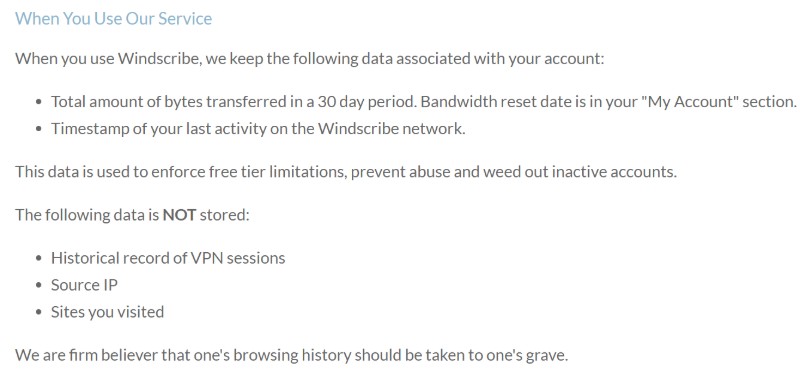
Windscribe is SOLID. This really is the bare minimum.
To be honest, I don’t like the timestamps—but it does make sense if you’re offering a free VPN that has a limited data allowance.
But the key things are not stored—what you’ve done, and where.
Some information is temporary stored in servers:
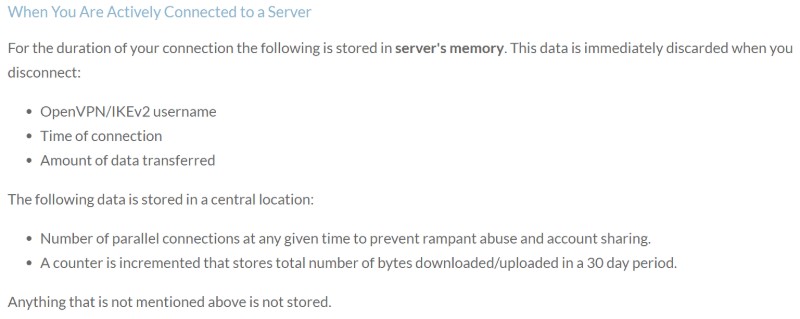
But again, temporarily. When you end your session, it’s discarded. And all things considered, that’s a relatively minimal amount of information.
What I like about Windscribe is it really does keep the bare minimum needed to keep the service running.
A lot of VPNs SAY they keep the bare minimum, but the truth is they keep a little extra. Sometimes it’s harmless, sometimes it might not be. Windscribe keeps less than what a lot of other VPNs do—undoubtedly a good sign.
But if there’s a gemstone here, it’s THIS:
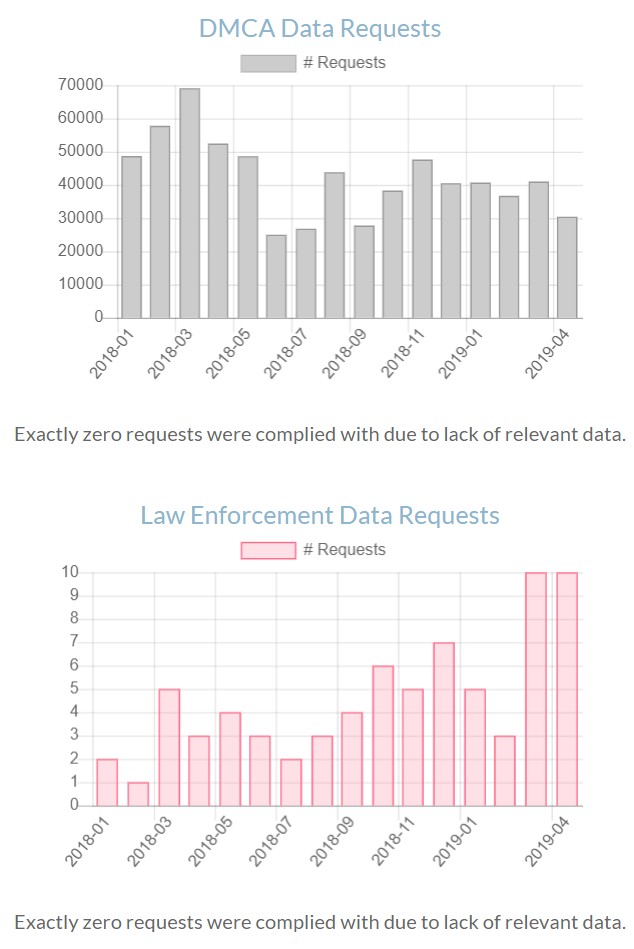
According to its transparency report, Windscribe HAS received copyright and law enforcement data requests.
And Windscribe complied with ZERO of those requests because there wasn’t enough data to comply with any of them.
This is GREAT.
Is it perfect?
No. And with any VPN, you’re going to be taking a leap of faith—but some leaps are larger or smaller than others.
I personally would like to see independently conducted audits of Windscribe, because that would really cement its trustworthiness over its own claims.
As most VPNs don’t offer that, however, it’s not exactly a standard (though I wish it were).
If we put all this stuff together, here’s the outlook:
The main problems are Windscribe’s location (Canada), and the lack of independent audits confirming its practices.
The latter is a high-ish bar that not a lot of VPNs have completed, so I can give Windscribe a bit of a pass.
But if Windscribe’s policies are genuine, it’s got some of the STRONGEST privacy policies around. The proof rests in Windscribe’s lack of compliance with requests to hand over data.
Plus, there’s plenty of stuff Windscribe lets the users do on their end, with features and settings that can really further your privacy and security.
All in all, Windscribe is NOT perfect or even the best VPN for privacy and security. BUT, it does have some great internal practices.
Shall we keep this high note going?
Pros
- Although the speed tests results are disappointing, Windscribe still works pretty well with Netflix, other streaming services, and torrenting.
- Although everyone has different needs and tastes, in my opinion Windscribe’s free VPN is the BEST free VPN around. It’s at least one of the best, even if it’s not the best for you.
- Generally good pricing for the paid options, including a relatively low monthly plan, average yearly plan, and a flexible per-location plan.
- The software itself comes loaded with features and settings, though a lot of it will be more useful to advanced users.
- Good on-site information, plus an active subreddit.
- Windscribe’s internal privacy practices are great, plus there are a lot of great security settings and features in the software for users to take control of.
- I have not had a reason to mention this earlier, but…Windscribe is a FUNNY VPN. Notice that many of the specific cities where servers are located have certain nicknames attached (ex: “Miami – Vice,” “Boston – Tea Party”). Not to mention a lot of the on-site info and certain settings are quite humorous. To the extent VPN software can feel like it has a personality, Windscribe DOES.
Cons
- Repeated speed tests show that Windscribe is actually…SLOW compared to a lot of its top competitors.
- Windscribe can be less user-friendly compared to some other VPNs. It’s one of the VPNs that offers some more advanced features and settings without explaining them simply or making them flashy/simple looking.
- Inconsistent live chat.
- Located in Canada.
Conclusion: Do I Recommend Windscribe?
I think it’s time I get to the moment we’ve all been waiting for:
The conclusion. Do I recommend Windscribe?
The SHORT answer is absolutely yes.
But the REAL answer is only to some people.
First of all, I definitely think that Windscribe is probably the BEST free VPN around.
That’s because despite being free, the privacy policy is STRONG and in fact the same as the premium version—PLUS, the performance and features are mostly the same.
The real loss is in the amount of servers you can access, and the bandwidth cap—but even that is really generous for a free VPN.
One of the reasons I haven’t committed long-term to some good VPNs, aside from just plain enjoying trying out different ones, is because the free version of Windscribe is enough to cover what I don’t want to do with Tor.
This means to people who have very LIGHT needs out of a VPN, the free version of Windscribe is a great way of getting the job done without sacrificing money or privacy.
Now, people who have HEAVIER usage goals, will of course need to pay for a VPN. And this is where things get more complicated.
In short, if your goal is to get the fastest VPN around, Windscribe probably shouldn’t be your top pick.
And if you really want a super user-friendly VPN, Windscribe isn’t bad, but you may not get the most out of it.
BUT, if you want a feature-rich VPN that still performs well (kind of), has a decent privacy policy, and you don’t want to invest in a high-end VPN, Windscribe is a GREAT deal.
Lastly, people who want the most secure VPN imaginable might not want to use Windscribe—it’s policies are solid, and it has a good history of non-compliance, but a VPN located offshore would still be safer.
So in conclusion, Windscribe’s free version is easily one of the best around and I’d even recommend it to SOME people looking to invest in a paid VPN.
The premium version is overall really strong, and is best for people who can tolerate some speed loss in exchange for great features and prices.
Still not sure?
Don’t worry—not sure how much clearer I can get on this, but you can just try the FREE version. You don’t even need an email address.
Have fun!
Write your own review
Have you ever used Windscribe?
If so, was my review of Windscribe too positive for you? Or did you find it pretty accurate?
And where particularly did you agree or disagree with me? I always enjoy hearing from fellow VPN-lovers, so I’d love to get your take!
You can write your own review below:



